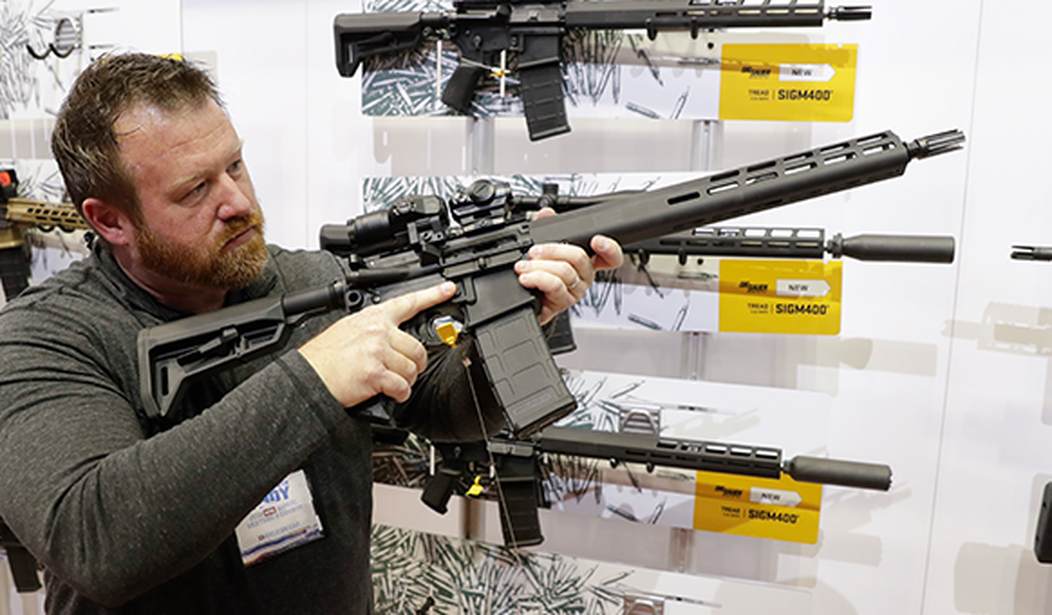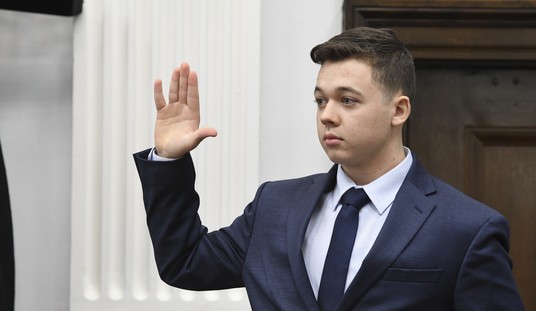It’s hilarious whenever the New Republic opts to pretend like anyone who writes there actually understands the Second Amendment. It would be like Amy Schumer talking about dieting or Alyssa Milano talking about, well, anything. They don’t know the subject yet desperately want people to think that they do.
The latest example is from historian Saul Cornell and him trying desperately to make the case that gun control is consistent with the Second Amendment.
As part of this comprehensive reappraisal, we need to tackle head-on the most stubborn political obstacle to meaningful progress on fashioning effective gun laws: the myths attached to the Second Amendment to the Constitution. This long-embellished mythology is so powerful that before his death, retired Justice John Paul Stevens even suggested repealing or rewriting this feature of our Constitution to facilitate this process of change. Some commentators indeed interpreted Stevens’s suggestion as a vindication of the fatalist view that the Second Amendment will always thwart effective reform efforts: How can we do anything significant and not run straight into “America’s First Freedom?”
But the actual background to the constitutional protection of the right to bear arms tells a very different story. Although Republicans and gun rights activists love to invoke the Second Amendment, few understand much about its fascinating history. We’ve settled for much too long on a Hollywood version of the early American republic that features trigger-happy Founders such as Thomas Jefferson and frontier folk heroes such as David Crockett, Kentucky Rifle in one hand and Bowie Knife in the other. Yet the prevalent mythology and the historical reality seldom line up. Exposing these myths is of course essential to fostering a calmer and more intelligent debate about future gun policy—but beyond that, it also turns out the Founders supported a quite robust view of gun regulation that would surprise most Americans. In fact, contrary to the potted propaganda now passing as serious history and effectively marketed by the gun lobby, some of the Founding generation’s approaches to regulation may offer guidance for how to move beyond our current impasse.
The whole thing kind of rambles, of course, but Cornell is a big fan of the idea that the Second Amendment is a collective right, an idea the Supreme Court rejected in the Heller decision.
Now, however, he’s arguing that gun rights somehow have to be balanced against “the peace.”
In other words, Jefferson’s guns were at the ready when hunting on his lands, but he was equally adamant that his firearm needed to be firmly secured when traveling on the public roads. A popular eighteenth-century American legal text likewise made it clear that armed travel in places where large numbers of people congregated was a crime under common law. What modern Republicans and most gun rights advocates have forgotten is that the right to bear arms was always weighed against another right the Founders esteemed highly: the peace.
The concept of the peace has been all but lost to modern Americans, who typically think about liberty almost exclusively in negative terms. It is relatively easy to conceptualize liberty as a limit on government overreach, but it is much harder for contemporary Americans to understand the importance of positive conceptions of liberty, including the right to enjoy the peace. Here is how one early American law book from the era of the Second Amendment described this concept: “the term peace, denotes the condition of the body politic in which no person suffers, or has just cause to fear any injury.” The primary enforcers and conservators of the peace in both England and early America were local justices of the peace. These individuals, typically prominent and respected men in the local community, had broad and far-reaching powers that included the ability to preemptively disarm anyone who posed a potential threat to the peace—a type of power that reformers are now trying to revive, in vastly diluted form, by adopting red-flag gun legislation.
The problem, however, is that criminals account for so many breaches of the peace despite the mountains of legislation against them possessing guns. The vast majority are recidivists, convicted felons who legally cannot own a firearm, yet they obtain these via the black market.
The only reason we enjoy any peace in the United States is because we have an armed citizenry who can fight back against the tyranny of the thug.
Over in England, they don’t have that and guess what happened? Crime increased once the population was unarmed and it continues to be an issue.
Disarming law-abiding citizens has never and will never create “the peace” Cornell mentions in his screed. Further, his invoking of the power possessed by justices of the peace ignores the issue many on the pro-Second Amendment side has with red flag laws, namely the lack of due process. Further, unlike then, a dangerous person who is deprived of his guns can still commit all kinds of mayhem without them. That wasn’t nearly as easy to do back in those days.
Cornell is still trying to peddle the idea that gun control is consistent with the Founders’ wishes, but he manipulates reality in such a way that he can claim they’d feel differently if they lived today. This is nothing more than revisionism on his part and anyone can look at it and tell.
Frankly, I’m unconvinced.








Join the conversation as a VIP Member